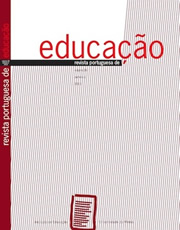Science curriculum for primary school - study of (dis)continuities in the pedagogical message
DOI:
https://doi.org/10.21814/rpe.3258Abstract
The study is centred on the analysis of the science curriculum for primary school. The difference in the message transmitted by the curricular documents Essential Competences - Study of the Environment and Syllabus of the Study of the Environment with regard to the what and to the how of the teachinglearning process is analysed. Possible influences on teachers’ pedagogic practices are discussed. Theoretically, the study follows psychological and sociological perspectives, with particular emphasis on Bernstein’s theory of pedagogic discourse, and methodologically uses a mixed methodology. With regard to the what is taught, the complexity of scientific knowledge and the complexity of investigative competences were analysed. With regard to the how, teacher-student and school-community relations and also relations between discourses and between spaces were analysed. The results show that the Essential Competences document calls for a more conceptualized
learning and for a pedagogic practice more children centred when compared with the Syllabus document. The coexistence of these documents for ten years may have been influencing negatively teachers’ pedagogic practices and also textbooks’ authors. The study gives therefore data for reflection on the principles that underlie primary science curriculum and their possible influence on science teaching and learning.
Keywords
Curricula; Primary school; Science education
Downloads
Downloads
How to Cite
Issue
Section
License
1. The authors preserve their authorship and grant the Portuguese Journal of Education the right to the first publication. The work is licensed under Creative Commons Attribution License that allows sharing the work with the acknowledgment of initial authorship and publication in this Journal.
2. The authors have the right to take additional contracts separately, for non-exclusive distribution of the published version of their work (e.g. to deposit in an institutional repository or as a book chapter), acknowledging the initial authorship and publication in this Journal.
3. The authors have the permission and are stimulated to post their work online (e.g. in an institutional repository or on their personal website). They can do this at any phase of the editorial process, as it may generate productive changes, as well as increase impact and article citation (see The Open Citation Project).
The work is licensed under Attribution-ShareAlike 4.0 International (CC BY-SA 4.0)





















